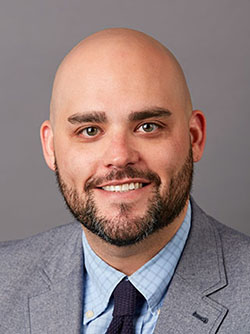Cancer Patients Facing Housing Instability Show Greater Risk of Mortality
UC San Diego study highlights need to screen for social risk factors at start of cancer care
Story by:
Published Date
Story by:
Topics covered:
Share This:
Article Content
Health systems are increasingly interested in integrating health care with social care, but little is known about cancer patients’ social welfare and how it affects their health outcomes.
To address this, researchers at University of California San Diego School of Medicine and partnering institutions assessed the prevalence and impact of various social risk factors in cancer patients. Their findings, published September 16, 2022 in JAMA Network Open, reveal that housing instability was the social risk factor most strongly associated with an increased risk of mortality.

“We wanted to understand what social and economic issues patients were facing when they first came in with a cancer diagnosis and how those might affect their long-term health,” said corresponding author Matthew P. Banegas, PhD, associate professor at UC San Diego School of Medicine and co-director of the Center for Health Equity Education and Research.
To evaluate patients’ ‘baseline’ social risk, the researchers looked at data from patients who completed a social risk survey within 90 days before or after their cancer diagnosis. The survey evaluated four categories of social risk, including financial hardship, food insecurity, housing instability and transportation difficulties. Researchers then measured how closely associated the social risk factors were with the patients’ mortality rates.
The study included 1,277 patients enrolled at Kaiser Permanente Northwest, half of which were women and 84 percent of which were non-Hispanic White.
The study found 16 percent of the cancer patients experienced one or more social risks, with financial hardships being the most common. A greater proportion of patients who reported social risks were women, from a racial or ethnic minority group, had Medicaid, had breast or lung cancer or had advanced-stage tumors.
Of the various social risks surveyed, housing instability was the most strongly associated with increased mortality risk, even after adjusting for the other social risk factors.
“We were surprised to find that housing instability had the biggest effect on patient outcomes, but this underscores the importance of doing this kind of research,” Banegas said. “Now we want to paint a clearer picture of the mechanism: how do we get from housing instability to greater mortality, and how can this information guide the types of screenings and resources we provide?”
The authors are also looking to repeat the study in other populations and health systems, and evaluate an even broader range of social factors, including social isolation and loneliness. In addition to collecting these baseline measurements, they also plan to track how social risks evolve as patients move through their cancer treatments.
“It’s clear that social risk factors affect health outcomes, so we should be screening for them as part of routine care,” Banegas said.
In addition to increased screening, Banegas suggests cancer centers develop programs to provide short-term housing for patients receiving cancer care.
“It’s important for health care systems to engage with their communities and understand what social resources are already available around them,” Banegas said. “Forging partnerships and referral programs with local organizations will be critical to getting patients the full spectrum of care they need.”
Co-authors of the study include: James D. Murphy at UC San Diego; John F. Dickerson at Kaiser Permanente Northwest Center for Health Research; Zhiyuan Zheng and Robin Yabroff at the American Cancer Society; Caitlin C. Murphy at University of Texas Health Science Center at Houston; and Reginald Tucker-Seeley at ZERO-The End of Prostate Cancer.
This study was funded by the National Cancer Institute (grant R01CA237322).
Full study: https://doi:10.1001/jamanetworkopen.2022.33009
# # #
You May Also Like
Stay in the Know
Keep up with all the latest from UC San Diego. Subscribe to the newsletter today.



